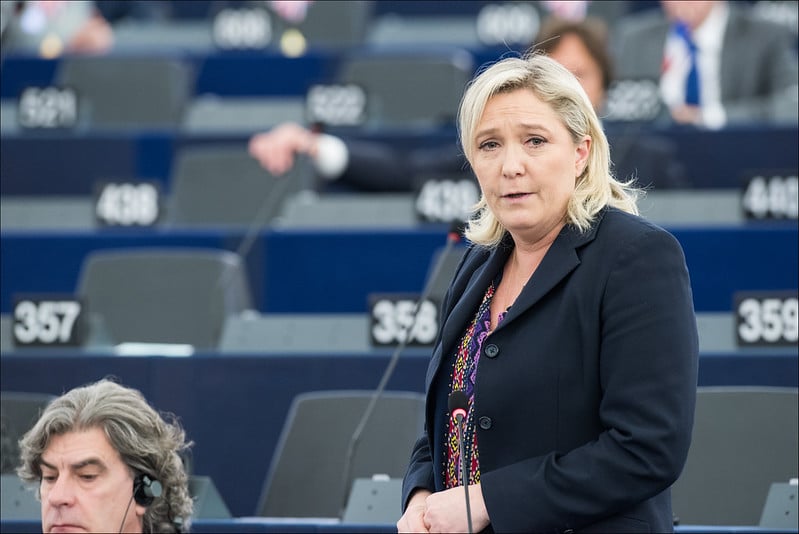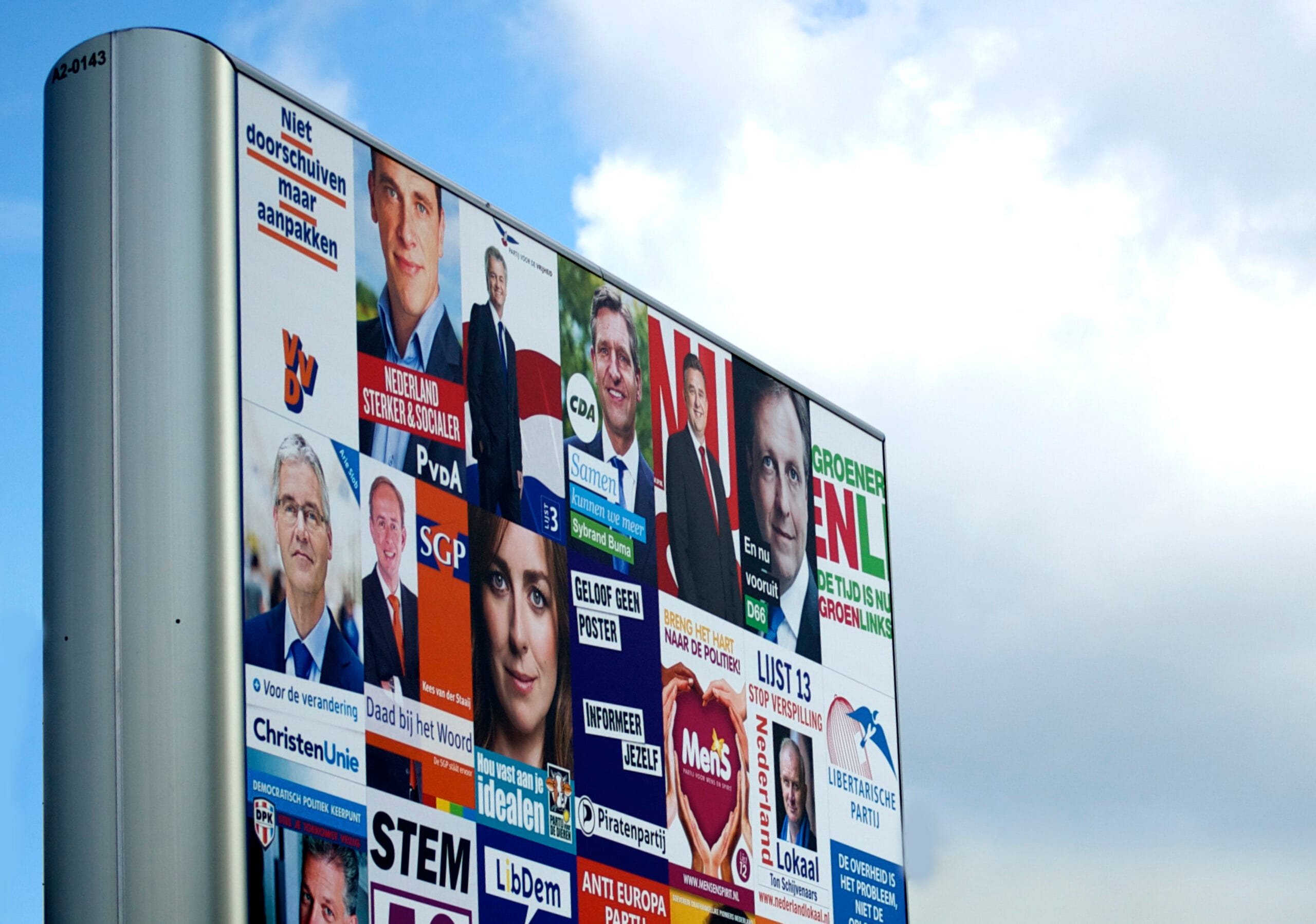Le Pen in European Parliament in 2017 (Flickr)
As France prepares for the run-off presidential elections on Sunday, April 24, the war in Ukraine appears to have re-shuffled the cards between centrist candidate Emmanuel Macron and far-right candidate Marine le Pen. Macron, incumbent president, has been the big favourite in the lead-up to the first round of elections, held last Sunday, April 10. However, the far-right and -left took 58% of the vote at these polls. The effects of the Ukraine war on purchasing power in France seem to affect voting behaviour significantly, boosting Le Pen's electoral campaign.
Le Pen's bid to rally France's working class
At first, the war in Ukraine seems to have benefited incumbent President Macron. In the tradition of the French president, he engaged in constant diplomacy with the world's biggest powers. Just before Putin's decided to invade, Macron visited the Kremlin to speak with Putin at his infamous meters-long table. France currently holds the presidency at the EU council, an important moment for Macron to put his various ambitions on EU reform on the agenda.
Meanwhile, Macron did not campaign domestically - as he polled very well during the start of the Ukraine war. Slowly but surely, Le Pen started to rise in the polls. She campaigns across the country, accentuating how Macron's technocratic policies hurt France's working class - and that the purchasing power of the French will decline rapidly. Le Pen watered down her most radical viewpoints - such as a French exit from the EU - to broaden her base.
While Le Pen seems moderate in comparison to extreme right polemist Éric Zemmour, she still holds a far-right agenda. She wishes to put French law above EU law, to leave NATO military command and ban headscarves completely from public areas - an unprecedented breach of individual rights and freedoms in Europe.
Expectations for April 24
Le Pen's tactics seem to be paying off. In the polls for the 24 April run-off vote, Macron leads Le Pen by six percentage points (53%-47%). A Franceinfo survey showed that purchasing power was decisive in the polling booth for 58% of the votes, after immigration (27%), healthcare (26%) and pensions (25%).
It will be key to which voters will head to the polls in a week-and-a-half. Jean-Luc Mélénchon, France's far-left candidate took twenty-two percent in the first round's elections. The voting behaviour of Mélénchon's electorate will be key to Macron's chances. The 70-year-old leftist candidate already said his electorate should not vote for Le Pen, but did not state that they should vote for Macron instead. It seems that the 2017 'Republican Front' that brought Macron an easy win at the polls at the time, seems more unlikely now. If many Mélénchon voters decide not to vote, or even vote Le Pen, her chances rise. Especially as Le Pen can count on the electorate of far-right candidate Éric Zemmour, who took 6.8% in the first round.
Le Pen's presidency?
A win for Le Pen at the 24 April polls could not have come at a worse moment for the EU and would be considered a victory in the Kremlin. Previously Le Pen openly admired Putin as she fiercely campaigns against "elites" and "globalists". In 2017, she openly supported Putin's invasion of Crimea. She starkly opposes EU sanctions. Two weeks ago, Le Pen said on French TV that Putin could "become an ally of France again" when the war ends. Previously, a nine-million-euro loan from a Russian bank financed the campaign of Rassemblement National - Le Pen's party.
Le Pen is befriended with Europe's autocracies. She was quick to congratulate Orbán on his sweeping victory in Hungary, two weeks ago. A le Pen presidency would be unbothered by Europe's autocracies that violate the EU's democratic norms and values. Possibly, she sees them as a model for French future policies.
How did we come this far?
In the end, who is to blame if - after Trump and Brexit - another populist, illiberal campaign vindicates the West's leading states? The people from rural and deprived areas in France see their purchasing power vaporize as Macron is engaging in diplomacy across the world. The war is far away from them - but still tangible in their pockets.
In Europe, our bid to import the cheapest natural resources, without regard to its supplier, has caused us to become under the leverage of the Kremlin. Due to our lack of independence in the energy market, a share of Europe's purchasing power depends on energy imports from Russia. In elections, domestic socio-economic issues remain crucial. It favours Europe's illiberal actors such as Le Pen, who say to present "the working class versus the elite" and outspokenly opposes sanctions. Advocating democratic norms and values, while funding dictatorships through energy imports, has effectively invited autocracy in our own countries.
The war in Ukraine could become a protracted conflict, causing it to continue for the years to come. France shows that it will be a key theme in upcoming elections - and the EU should be prepared.
Sources: Financial Times I Politico I Politico II Al Jazeera Financial Times II Reuters Connexion France Franceinfo




